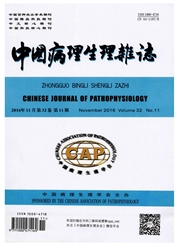

 中文摘要:
中文摘要:
骨质疏松症是以骨质减少,骨微观结构退化为特征,致使骨的脆性增加以及易于发生骨折的一种全身性骨骼疾病。随着老龄化人群的不断增长,骨质疏松的防治已经成为一个全球的健康问题。骨质疏松与遗传、性别、年龄、体重、种族、饮食等均有相关性。和种族、遗传因素不同,一些危险因素是可以干预的,包括饮食营养、性激素、药物应用、生活习惯等。因此,从饮食营养角度探讨骨质疏松的防治有着重要意义。
 英文摘要:
英文摘要:
Osteoporosis has become a global public health problem, and dietary interventions may potentially be helpful in preventing this disorder. Salt ( sodium chloride) is one of the most important dietary nutrients. High sodium chloride intake may play an important role in bone metabolism. In this paper, we reviewed the effects of high sodium chlo- ride intake on bone mineral density, bone mineral content and bone biochemical markers, and analyzed the possible causes through currently available literature. Although there are a few inconsistencies results, we conclude a long-term high salt intake can reduce bone density or bone mineral content, change many biochemical markers of bone resorption, which may be caused mainly by increasing urinary calcium excretion and a low-grade metabolic acidosis. However, there are still many unclear aspects need further exploration.
 同期刊论文项目
同期刊论文项目
 同项目期刊论文
同项目期刊论文
 Quercetin promotes the osteogenic differentiation of mesenchymal stem cells via mitrogen-activated p
Quercetin promotes the osteogenic differentiation of mesenchymal stem cells via mitrogen-activated p 期刊信息
期刊信息
